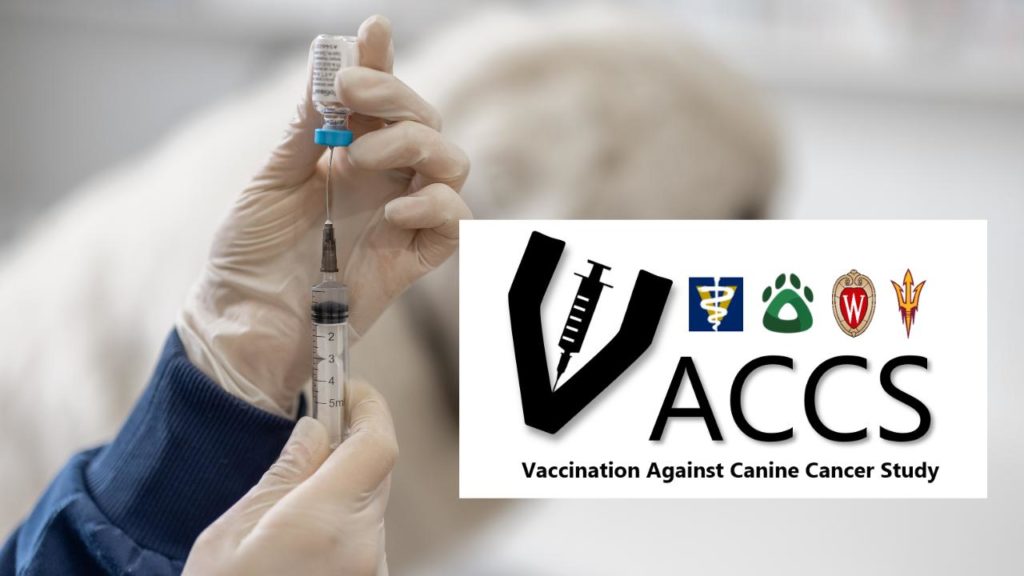Dog Cancer Research: About Clinical Trials for Dog Cancer
Finding a clinical trial to enroll in is a wonderful way to actively participate in health care progress. Not only will your dog have access to novel therapeutics at a subsidized cost, but you (and your pet) will be helping to improve anticancer treatment options available to dogs and humans. As long as you understand the safety and efficacy concerns, participating in dog cancer research might be a great option for you and your dog.
Key Takeaways
- Clinical trials play an important role in determining the safety, efficacy, and side effects of new cancer therapies for dogs.
- Don’t confuse clinical trials with animal studies. Laboratory animal studies might induce cancer to study a new cancer treatment. Clinical trials do not induce cancer; cancer is already there, and the dog enters the trial to see if it will help.
- The goal of the clinical trial is to find a treatment that is as good as, if not better than, therapeutic options currently on the market.
- Human and dog cancer share many similarities, so data collected from clinical trials involving dogs can aid in better understanding cancer in humans and determining dosage requirements for new therapies.
- Clinical trials take place at different locations and their duration depends on the study protocol.
What is a Clinical Trial?
A clinical trial is a dog cancer research study that uses dogs (or humans) as volunteers or participants. A clinical trial aims to learn about a new cancer treatment for dogs. Researchers study a novel therapeutic or clinical approach that is not yet widely used in the medical or veterinary community.
You may also see clinical trials called interventional studies or observational studies.1
Veterinarians or medical doctors often serve as the principal investigator of clinical trials. Their research can be funded by pharmacological companies, academic centers, voluntary groups, federal agencies like the National Institutes of Health, the United States Defense Fund, the United States Veteran’s Affairs, or by doctors, nurses, or health care providers.1
Trials can take place at hospitals, veterinary clinics, universities, community areas, or even at home. How long a clinical trial lasts will depend on the study protocol and intervention being tested.1
Cancer Research for Dogs Provides New Insights and Options
Clinical trials play an especially critical role in canine cancer. They’re important in determining the safety, efficacy, and side effects of therapeutics, as well as advancing the science surrounding cancer detection.
Clinical trials should not be confused with laboratory animal studies. Laboratory animal studies may induce cancer in order to study a new cancer treatment for dogs.
But in clinical trials, your dog’s cancer is naturally occurring, and the goal of the clinical trial is to provide a treatment that is as good as, if not better than, therapeutic options currently on the market. Typically, your pet will stay with you for the duration of their participatory period, and simply arrive as scheduled for routine tests.4
Cancer Research in Dogs Helps Humans, Too
Registering your dog for a clinical trial can not only help them and future dogs like them, but may also assist in better understanding cancer in humans. Animal models, like mice and rats, are typically used in cancer studies when research is in an exploratory phase. Unfortunately, mice and rats don’t have a lot in common with humans. Laboratory animals are kept in sterile environments, aren’t exposed to outside sources over a longer-term basis, and don’t share common experiences with humans.
Dogs are an exception to this – they live in the same environments as us, eat similar foods, and often get the same diseases as humans. When a study involves dogs, it is generally more reliable.
Data collected from clinical trials involving dogs can also aid in determining dosage requirements.4 Thus, trying novel therapies on pets, rather than laboratory animals, may help scientists achieve promising therapeutic results for humans faster.5
Having your dog participate in a clinical trial helps future generations of pets and advances veterinary science.2 Clinical trials help vets investigate new methods to improve both the detection and treatment of various diseases, and work to improve the overall quality of life in animals.
 How Clinical Trials Work
How Clinical Trials Work
In a clinical trial, participants are given specific interventions according to a research plan, or protocol, that is set out and dictated by the principal investigators of the study. Interventions may include the use of new drugs, combinations of drugs, devices, procedures, or diet.
Clinical trials will often consist of a test group, a placebo group, and a control group. If your dog is put into the test group, also called the experimental group, they will receive the intervention being studied. If your dog is put in the placebo group, then they will receive a treatment that has no therapeutic value, and if your dog is in the control group, then they will not receive any part of the intervention and will serve as a baseline that the other two groups can be compared to. Not all trials will have all of these groups.1
For example, say you sign your dog up for a clinical trial that is testing a new curcumin-based oral supplement. Dogs in the experimental group would receive the curcumin-based oral supplement, dogs in the placebo group might receive a water-based oral supplement, and dogs in the control group would not receive an oral supplement at all. If the tested parameters of all three groups are the same, then investigators will likely surmise that the intervention has no beneficial or detrimental clinical effect.
Who Pays for Clinical Trials?
Monetary requirements for dog clinical trials vary. Some will pay for your dog’s treatment. For example, trials funded by the National Cancer Institute cover all associated medical costs.3
However, other trials require owners to pay for their dog’s associated costs. Clinical trials will likely require you and your pet to travel, and you may incur transportation expenses depending on how close to home the trial is taking place.2
How Do I Sign Up for a Clinical Trial for My Dog?
There are a few hoops to jump through before your dog can be enrolled in a clinical trial. They not only have to have cancer but usually have to have the specific type of cancer that the intervention is being tested for. For example, if a clinical trial focuses on invasive bladder cancer, a dog with osteosarcoma will not be eligible. If your dog’s cancer diagnosis aligns with the study’s need, your dog will likely undergo additional tests to confirm they’re a good choice for the clinical trial.
Rules and regulations dictate that human cancer patients can only be enrolled in clinical trials as a “last resort” when their cancer is no longer responding to conventional treatments. These regulations don’t apply to your dog. Dogs are not held to the same rules as humans and may be enrolled in a clinical trial at any time after a proper diagnosis is made by a veterinarian. This means that dogs have early access to therapies that may be much more promising than traditional options.6
How Do I Know a Clinical Trial Is Right for My Dog?
Deciding to enroll your dog in a clinical trial is a big step. Here are a few things to consider before helping oncologists with their dog cancer research:
Who is paying?
Remember, sometimes funding for a clinical trial will be allocated to cover your dog’s medical expenses, but other times you may foot the bill just as you would with your veterinarian.4
Be sure to ask who is paying, what the funding cap is, and for how long.2 Also find out what happens if your dog experiences side effects and needs treatment.
What will travel be like?
Clinical trials can occur in many different locations, but they’re often isolated and may not be found in your area. You and your dog may have to travel to get to your appointments. Travel expenses may be, but typically aren’t, covered or reimbursed.2
How will this contribute to dog cancer research?
Enrolling your dog in a clinical trial will give them access to a new cancer treatment, which may really help them. Even if the clinical trial does not incur benefits to your dog, you’ll be helping to advance canine oncology research that will ultimately lead to better diagnostic tests and improved therapy options. Keep in mind that this can also extend to humans given that so much about cancer in dogs overlaps with cancer in us.4
How comfortable am I with the “unknown?”
A new intervention won’t have the scientific backing of conventional methods and will not have yet been proven effective or safe. Your veterinarian will do their best to notify you of all the potential dangers involved,4 but trying something clinically novel has inherent risks that can’t always be predicted.
Find out if the study that you are considering enrolling your dog in is evaluating safety (testing what dosages are well-tolerated and which cause side effects) or efficacy (how well the therapy works). If it’s a safety study, your dog may need to take higher doses of something in order to help find the “upper limit” of the dose, and may have an increased risk of side effects. Those tests usually come before efficacy tests, which use pre-determined doses to see how well them do against a control method.
Do I have time for the clinical trial?
A clinical trial into a new cancer treatment for dogs can be lengthy and may require an extensive time commitment. You’ll be tasked with adhering to particular protocols, bringing your dog to appointments, following up with researchers, and other tasks as assigned. You would likely go through something similar with conventional treatments, but will have a better idea of its efficacy and safety while doing so, which may make time commitments seem less intensive.7
Is the trial placebo-controlled, and if so, is there a tripwire?
If the trial is placebo-controlled, your dog may be assigned to the group that gets a placebo. This means your dog is not getting the new cancer treatment being evaluated. Some placebo-controlled trials include a “tripwire” where if a dog in the placebo group experiences disease progression, the dog can either switch groups into the experimental group or leave the study (potentially with reimbursement to go towards getting the standard of care treatment).
Can I drop out of the clinical trial?
The answer to this question should always be yes, but it’s a good idea to discuss your intention to pull your dog from the clinical trial if the treatment is clearly not effective or causes harsh side effects.4
Do I have ethical concerns with clinical trials?
Good scientists have progressive veterinary and medical care in mind when conducting dog cancer research, but there may still be something ethically unnerving about enrolling your dog in a medical experiment.7 Your moral and ethical considerations are yours to prioritize and should not be swayed by your veterinarian or researchers associated with the clinical trial. Although they are the experts, the direction that you take for your dog’s cancer journey should be up to you and what you think is best for them.
Questions to Ask
It can be difficult to keep track of all the questions you’ll want to ask your veterinarian or the trial’s principal investigators. We suggest writing these down or screenshotting this list to help you remember.1
- What is being studied and what is the goal of this clinical trial?
- What is the intervention being used in this clinical trial?
- Why was this intervention chosen?
- Has this intervention been tested before?
- Will I know what intervention my dog is receiving and whether they are part of the experimental, placebo, or control group?
- What happens if my dog is in the placebo or control group and the disease progresses?
- What tests are necessary for my dog while they are in the clinical trial?
- What are my privacy rights?
- Who will pay for the intervention and how much will they pay for it?
- How long is the study?
- Do you foresee a long-term commitment, and if so, what does that long-term commitment look like?
- Will I be reimbursed for medical, or travel expenses related to the clinical trial that I pay for upfront?
- Will I see results?
- Can I remove my dog from the study early?
- Can you share the protocols of the clinical trial with me?
- What is the visitation and follow-up schedule?
Remember, no question is dumb, and no details are too small! Ask whatever may come to mind making sure all your concerns are addressed. The researchers would much rather have participants who fully understand the trial and are fully invested in the process than someone who drops out early, which may skew results.
Where to Find Clinical Trials
Several hundred clinical trials are underway in any given year,8 so you may be able to find one that suits your dog and your location needs. There are several places to look for clinical trials.
We are currently tracking new trials on new cancer treatments for dogs:
T-CHOP Naïve Canine Lymphoma Study at CSU
Vaccination Against Canine Cancer Study (VACCS)
One broad search tool is the American Veterinarian Medical Association’s clinical trial database, which you can access and sort by specific type of cancer.8 The American Kennel Club Canine Health Foundation website also has a list of active links for clinical trials with titles that will help you narrow down geographic location.2
You can also go straight to the funding source. For example, the National Cancer Institute funds several clinical trials, and their website lists currently active clinical trials that they support.3 One bonus of going through a clinical trial funded by the National Cancer Institute is that costs are fully covered.3
Certain universities are known to run clinical trials surrounding dog cancer, such as Cornell University,9 Purdue University,4 University of Pennsylvania,10 Colorado State University11 and Johns Hopkins University.12
- National Institute of Health. Learn about Clinical Studies. U.S. National Library of Medicine. March 2019. Accessed December 5, 2022. https://clinicaltrials.gov/ct2/about-studies/learn#WhatIs.
- No author. Clinical Trials. American Kennel Club Canine Health Foundation. No publication date. Accessed December 15, 2022. https://www.akcchf.org/research/participate-in-research/clinical-trials.html.
- NCI Staff. Helping Dogs – and Humans – with Cancer: NCI’s Comparative Oncology Studies. National Cancer Institute. July 10, 2016. Accessed December 15, 2022. https://www.cancer.gov/news-events/cancer-currents-blog/2019/comparative-oncology-dogs-cancer-clinical-trials.
- No author. Clinical Trials in Dogs with Cancer: Frequently Asked Questions. Purdue University College of Veterinary Medicine. No publication date available. Accessed December 15, 2022.
- Grimm D. Can clinical trials on dogs and cats help people? Science. August 11, 2016. Accessed December 15, 2022. https://www.science.org/content/article/can-clinical-trials-dogs-and-cats-help-people.
- No author. What are Clinical Trials and Studies? NIT National Institute on Aging. April 9, 2020. Accessed December 15, 2022. https://www.nia.nih.gov/health/what-are-clinical-trials-and-studies#:~:text=Clinical%20trials%20are%20research%20studies,safe%20and%20effective%20in%20people.
- LaMorte WM. Strengths and Limitations of Clinical Trials. Module 4 – Epidemiological Study Designs 1: Cohort Studies & Clinical Trials. 2021. Accessed December 15, 2022. https://sphweb.bumc.bu.edu/otlt/MPH-Modules/PH717-QuantCore/PH717-Module4-Cohort-RCT/PH717-Module4-Cohort-RCT16.html.
- Clifford C. Choosing the Right Clinical Trial for Your Dog. Dog Cancer Answers. No publication data available. Available at: https://dogcanceranswers.com/choosing-the-right-clinical-trial-for-your-dog-dr-craig-clifford-deep-dive/. Accessed December 15, 2022.
- No author. Clinical Trials. Cornell University College of Veterinary Medicine. No publication date. Accessed December 15, 2022. https://www.vet.cornell.edu/hospitals/clinical-trials-0.
- No author. Clinical Trials | VCIC. PennVet University of Pennsylvania. No publication date. Accessed December 15, 2022. https://www.vet.upenn.edu/research/clinical-trials-vcic/all-clinical-trials.
- No author. Vaccination Against Canine Cancer Study. Colorado State University Flint Animal Cancer Center. No publication date. Accessed December 15, 2022.
- No author. Canine Cancer Clinical Trial (Hemangiosarcoma or Prostate Cancer). Radiology and Radiological Science Veterinary Clinical Trials Network Johns Hopkins Medicine. No publication date. Accessed December 15, 2022.
Topics
Did You Find This Helpful? Share It with Your Pack!
Use the buttons to share what you learned on social media, download a PDF, print this out, or email it to your veterinarian.





